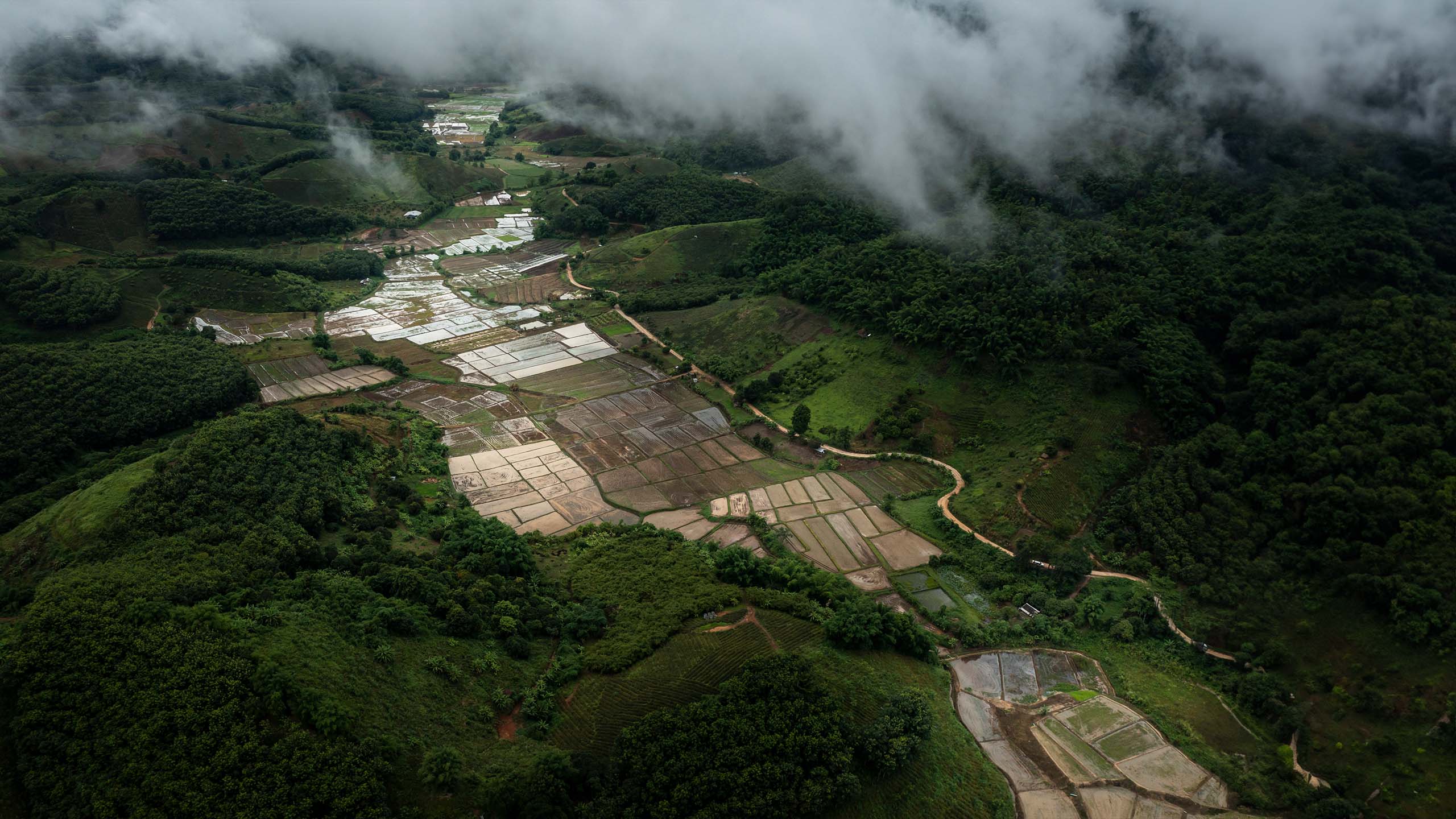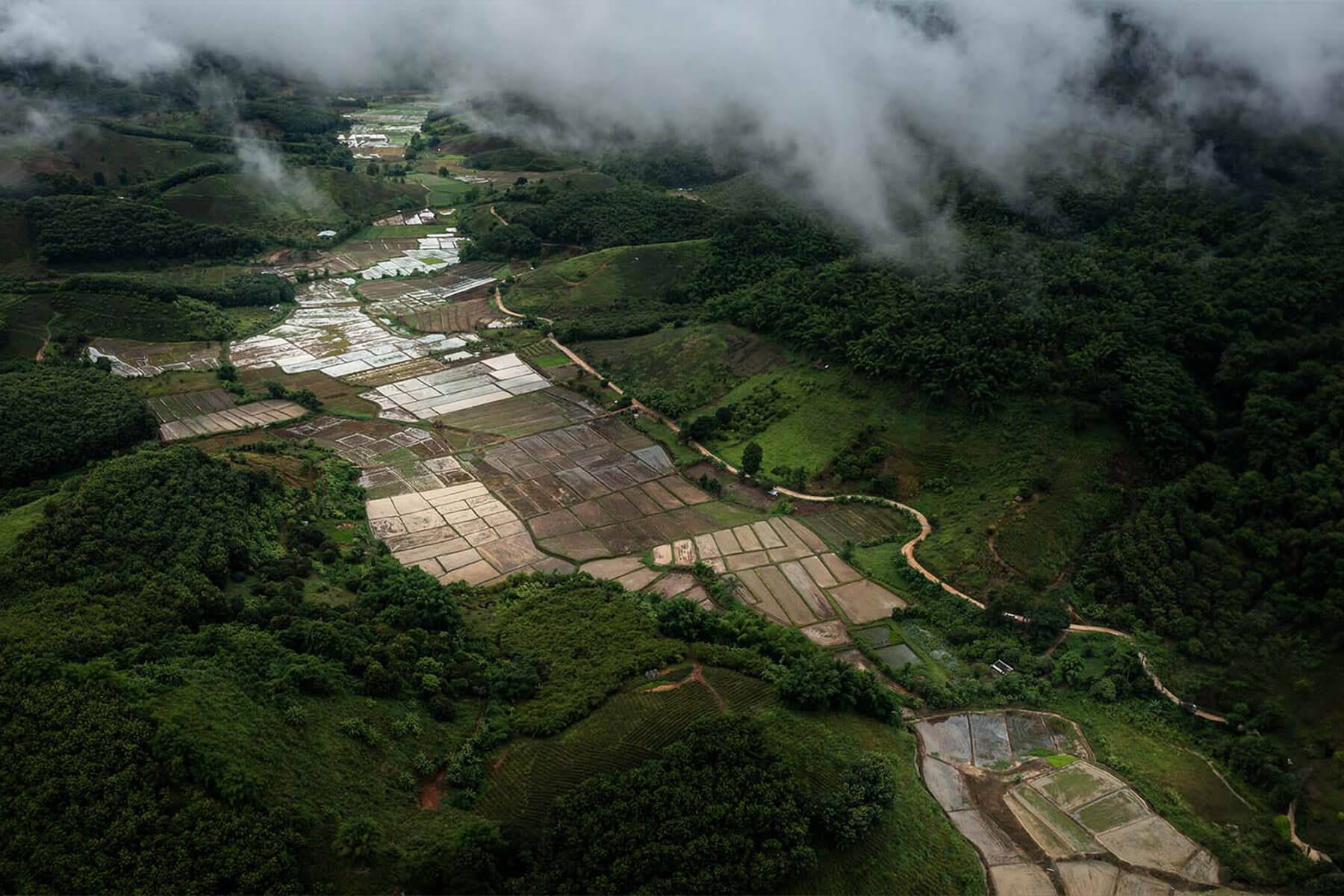Reforestation in
Thailand
From tropical rainforests and lush mountain ranges to fertile plains and coastal mangroves, Thailand boasts diverse landscapes. The country’s forests, particularly in the northern highlands and southern peninsula, are rich in biodiversity, providing habitat for endangered species like the Asian elephant and the Indochinese tiger. These ecosystems help maintain regional climate patterns and support agriculture, making them essential for both environmental health and local economies.
Thailand faces significant threats from deforestation due to logging, agricultural expansion, and development. These activities lead to habitat loss, biodiversity loss, and increased carbon emissions, which contribute to global climate change. The destruction of forests also exacerbates soil erosion and reduces water quality, further impacting local ecosystems and communities.

Thailand Stats
32%
forest cover
Thailand has around 32% forest cover.
Thailand Country Profile, AFoCO
245
Protected areas
Thailand has approximately 245 protected terrestrial and marine areas.
Aichi Biodiversity Target 11 Country Dossier: THAILAND, Convention on Biological Diversity
2.5-3.2K
endangered Elephants
Only 2,500 to 3,200 endangered Asian Elephants remain in Thailand.
Asian Elephant, WCS Thailand
20
Ecoregions
Thailand contains 15 terrestrial ecoregions, 4 marine ecoregions, and 1 pelagic province.
Aichi Biodiversity Target 11 Country Dossier: THAILAND, Convention on Biological Diversity
75%
Habitat Loss
At least 75% of California’s original habitat has already been lost.
60%
Of Water
60% of potable water in California is sourced from forested watersheds.
Project Highlights
Reforestation in Thailand focuses on revitalizing deforested and degraded lands to restore critical habitat, help smallholder farms to diversify and improve crop production sustainably, and empower local communities to participate in tree planting. Learn about three recent reforestation projects that planted trees in Thailand.

Reforestation for Youth, Farmers, & Community
In Thailand's Isaan region, degraded land and retired rice fields are being transformed into thriving hardwood forests, offering improved soil quality and sustainable income for farmers. This community-centric project also plants trees in school gardens and teaches students about the importance of trees, endangered species, forestry and money management.
Hilltribes Forestry & Agroforestry
This project works at the intersection of poverty alleviation and environmental restoration to heal watersheds and end hunger for one of the world’s most vulnerable communities. Local farmers are empowered to plant and nurture a mix of fruit, coffee and native trees. The trees are planted on common and private lands in partnership with local authorities.


Agroforestry with Smallholder Rubber Farmers
This project focuses on agroforestry and riparian regeneration with rubber farmers in Surat Thani. Farmers are offered an education program to help improve the resilience of their rubber plantations through integrating agroforestry systems, providing diversified income streams and improved food security. Intercropping species include valuable hardwood trees, fruit trees and non-timber forest products.


